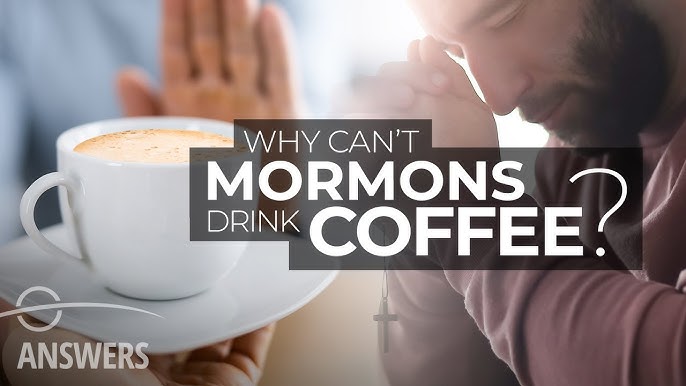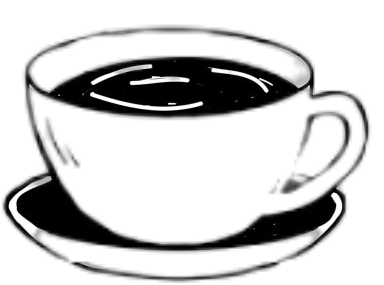
Exploring why certain cultural or religious practices exist can be fascinating. And if you're reading this, you're probably curious about one specific aspect: Why Can't Mormons Drink Coffee? Maybe, like me, you stumbled upon a product that dives into the very question many of us had wondered about. I remember the first time I saw this title, it caught my attention—I couldn't help but be intrigued.
Understanding the Cultural Significance: Why Can't Mormons Drink Coffee
Before diving into my experience with the product, it helps to understand a little bit about the cultural context behind it. Mormons, also known as members of the Church of Jesus Christ of Latter-day Saints, follow a health code known as the Word of Wisdom. This code suggests that coffee, along with alcohol, tobacco, and certain other substances, should be avoided. The reasoning behind it is often viewed as a mixture of health, spiritual cleanliness, and maintaining discipline.
Now, this product is more than just an explanation of cultural beliefs; it's a deep dive that takes you through history, context, and everyday perspectives that give you a rounded understanding. I found that it was very informative but also approachable, offering details in a conversational manner that kept me interested without ever feeling like it was preaching.
My First Experience With the Product: Why Can't Mormons Drink Coffee
When I first opened the product, I was expecting a dry, textbook-like dive into religion and caffeine. Instead, I found something far more nuanced and interesting. The approach was neither condescending nor overly academic. It felt like sitting down with someone knowledgeable who took the time to explain things without pushing an agenda. The experience felt genuine, which made a big difference to me.
The Why Can't Mormons Drink Coffee product is essentially an exploration of a lifestyle choice. Instead of just focusing on the "why not," it goes into the broader view of Mormon culture and how coffee, in some ways, became a symbol of adherence (or non-adherence) to faith. For instance, one part that stuck with me was how the avoidance of coffee isn’t just about the caffeine but is often tied to ideas of purity, discipline, and the commitment to following a particular path. As someone who enjoys coffee daily, it was interesting to see how it plays an entirely different role in someone else’s life.
Practical Benefits of the Product: A Tool for Understanding
One thing that makes this product worthwhile is its practical application. It’s an excellent resource not just for those who are curious about the Mormon faith, but also for educators, students, and anyone involved in cultural studies. For example, I could easily see this being useful for someone taking a course in comparative religion. It provides enough depth without overwhelming you, making it an easy reference guide that’s practical for both personal knowledge and academic contexts.
On a personal level, I also found it helpful for interacting with people in my life. I have a Mormon colleague, and having this background has made our conversations more nuanced. I now understand why he politely declines coffee whenever we have office meetings, and I’ve learned to offer alternatives that make him feel more included. It’s small, but it makes a difference, and I credit the product for giving me that context.
Exploring Everyday Implications: Why Can't Mormons Drink Coffee in Social Situations
One of the sections that I found particularly enlightening was the focus on the social implications of coffee consumption (or the lack thereof). The product explains how, for Mormons, declining coffee is not just about saying no to a beverage; it's also a statement of their identity. Coffee shops are a big part of modern social life—they’re places to meet, to chat, to work, and to relax. By not participating in that culture, Mormons often set themselves apart from mainstream society in small but meaningful ways.
The product even provides personal stories from Mormons who have experienced this first-hand—how they navigate situations like office coffee breaks or social gatherings. It made me appreciate just how much something seemingly simple, like a cup of coffee, can actually play a role in defining boundaries and relationships. I think this aspect of the product offers a lot of value because it’s these small, humanizing details that make complex cultural norms easier to understand.
The Question of Health: Coffee and the Word of Wisdom
Another thing I appreciated was how the product delved into the health aspect of coffee. While the Word of Wisdom doesn’t explicitly focus on the health impacts alone, the product takes the time to explain some of the health reasoning behind the guideline. For example, there is a focus on caffeine addiction and how the church sees its avoidance as a way of living a cleaner, more disciplined life. It’s not necessarily about whether coffee is good or bad, but about making choices that are aligned with spiritual well-being.
This angle was particularly insightful for me. As a coffee lover, I never really considered the idea of being spiritually unburdened by caffeine. But after reading through the product, I found myself rethinking my daily reliance on that morning cup—not to the extent of giving it up, but definitely reevaluating whether it should have such a central role in my life. That’s the kind of subtle but meaningful reflection the product encourages without ever directly telling you what to do.
Practical Application in Daily Conversations: Why Can't Mormons Drink Coffee as a Discussion Starter
I think one of the best things about this product is how it can be used as a conversation starter. In our increasingly diverse world, understanding why different groups do what they do is crucial. Since going through this product, I've found myself having richer conversations with friends and acquaintances—even those who aren’t Mormon—just because it opens up a door to talking about belief, culture, and how we choose to live our lives.
For instance, I shared some of what I learned with my partner, who had always been curious but never really understood why coffee was such a big deal for Mormons. It sparked a really interesting conversation about the different ways cultures use food and drink to symbolize values, something that’s easy to overlook when you’re not part of that culture. It was a moment where I realized that learning about these little details doesn’t just stay in your head—it affects how you see the world and interact with people.
Product Review Conclusion
The Why Can't Mormons Drink Coffee product is a fascinating dive into cultural understanding. What started as a curiosity for me ended up being a deeply engaging learning experience that broadened my perspective. It’s well-researched, thoughtful, and presented in a way that makes you feel like you’re being guided by someone who genuinely wants you to understand, rather than just presenting facts.
Whether you’re interested in religion, culture, or just want to understand why someone might turn down a cup of coffee, this product has something for you. It’s informative without being preachy, detailed without being dry, and offers a balance between cultural insight and practical information that I found really refreshing. If you’re curious about Mormon practices or want to broaden your understanding of cultural behaviors, I’d definitely recommend giving this a try.
Frequently Asked Questions
Q: Why do Mormons avoid coffee but drink soda?
A: The Word of Wisdom specifically mentions coffee and tea as substances to be avoided. While caffeine is present in sodas, they aren't explicitly mentioned in the religious guidelines, and thus many Mormons feel comfortable consuming soda in moderation.
Q: Is the restriction on coffee about caffeine?
A: Not entirely. The restriction is more about following the guidance given in the Word of Wisdom, which mentions avoiding "hot drinks." Over time, church leaders have interpreted this to mean coffee and tea, irrespective of their caffeine content.
Q: How do Mormons handle social situations involving coffee?
A: Many Mormons navigate these situations by politely declining coffee and opting for other beverages. The product I reviewed includes personal accounts that illustrate the different approaches Mormons take, which often involve preparation and a bit of humor.
Q: Are there health benefits to avoiding coffee?
A: Some believe that avoiding coffee helps with reducing dependency on caffeine, which can be beneficial for one's physical and mental health. The Word of Wisdom is seen as a holistic health guideline, and its followers view adherence as beneficial for spiritual well-being.
Q: Can Mormons drink decaffeinated coffee?
A: Generally, no. Decaffeinated coffee is still considered coffee, and thus it is also avoided by those following the Word of Wisdom. The focus is more on the substance itself rather than just the caffeine content.
Q: What do Mormons drink instead of coffee?
A: Many Mormons opt for alternatives like herbal teas, hot chocolate, or other non-caffeinated beverages. The emphasis is on finding substitutes that align with their health guidelines while still enjoying warm drinks.
